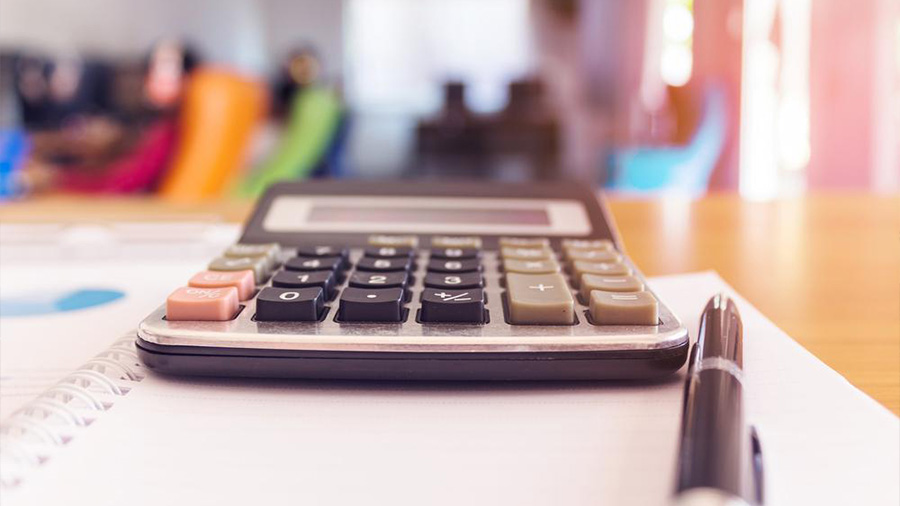Any entity, including corporations, partnerships, trustees, and organizations involved in any trade, profession, or business in Hong Kong, is subject to tax on all profits arising in or derived from Hong Kong (excluding profits arising from the sale of capital assets).
Profits tax is levied based on assessable profits, which is determined by excluding deductions and tax-exempt incomes. It is further reduced by tax reductions, subject to a maximum.
Profits tax rate
Profits earned by a corporation are taxed at a standard rate of 16.5 percent, while profits earned by unincorporated businesses are taxed at a standard rate of 15 percent.
The SAR has also implemented a two-tier tax profits tax system. The rates are as follows:
|
Two-Tiered Profits Tax Rates |
||
|
Assessable profits |
Corporations |
Unincorporated businesses |
|
First, HK$2 million |
8.25% |
7.5% |
|
Over HK$2 million |
16.5% |
15% |
However, only one may elect the two-tiered profits tax rates for two or more connected entities. All other entities are still taxed at 16.5 percent for corporations and 15 percent for incorporated businesses.
Additionally, the assessable profits for sums received by or accrued to holders of qualifying debt instruments as interest, gains, or profits shall be excluded, as these should already be taxed at half the rate (8.25 percent or 7.5 percent, as the case may be).
Concessionary rate
A tax rate of 50 percent of the normal profits tax rate will be applied to:
- Trading profits and interest income received or derived from “short/medium term debt
instruments” (issued before April 1, 2018); - Qualifying profits of a qualifying corporate treasury center (for the year of assessment
2016/17 onwards); - Qualifying profits of a qualifying aircraft lessor or a qualifying aircraft leasing manager (for
the year of assessment 2017/18 onwards); - Qualifying profits of a professional reinsurer or authorized captive insurer (for the year of assessment 2018/19 onwards);
- Qualifying profits of a specified insurer or licensed insurance broker company (for the year of assessment 2020/21 onwards); and
- Qualifying profits of a qualifying ship lessor or a qualifying ship leasing manager (for the year of assessment 2020/21 onwards).
A profits tax rate at 0 percent or 50 percent of the normal profits tax rate will be applied to:
- Qualifying profits of a qualifying ship lessor or a qualifying ship leasing manager (for the year of assessment 2020/21 onwards); and
- Qualifying profits of a qualifying ship agent, a qualifying ship manager, or a qualifying ship broker (for the year of assessment 2021/22 onwards).
Moreover, the concessionary profits tax rate for the assessable profits of (a) eligible family-owned investment holding vehicles managed by eligible single-family offices in Hong Kong and (b) family-owned special purpose entities earned from the qualifying transactions and incidental transactions for a year of assessment commencing on or after April 1 2022 is 0 percent.
Exemptions
The following sums can be exempted from the assessable profits of a company:
- Dividends received from a corporation which is subject to Hong Kong profits tax;
- Amounts already included in the assessable profits of other persons chargeable to profits tax;
- Interest on Tax Reserve Certificates;
- Interest on, and any profit made in respect of, a bond issued under the Loans Ordinance (Cap. 61) or the Loans (Government Bonds) Ordinance (Cap. 64), or in respect of an Exchange Fund debt instrument or in respect of a Hong Kong dollar-denominated multilateral agency debt instrument;
- Interest income and trading profits derived from long-term debt instruments;
- Interest, profits, or gains from qualifying debt instruments (issued on or after April 1, 2018) exempted from payment of profits tax; and
- Sums received or accrued in respect of a specified investment scheme by or to the person as:
- A person chargeable to profits tax in respect of a mutual fund, unit trust, or similar investment scheme that is authorized as a collective investment scheme under section 104 of the Securities and Futures Ordinance (Cap. 571); or
- A person chargeable to profits tax in respect of a mutual fund, unit trust, or similar investment scheme where the Commissioner is satisfied that the mutual fund, unit trust, or investment scheme is a bona fide widely held investment scheme, which complies with the requirements of a supervisory authority within an acceptable regulatory regime.
- A person is exempt from payment of profits tax in respect of the following sums:
- Interest (accrued on or after June 22, 1998) that is derived from any deposit placed in Hong Kong with an authorized institution, excluding interest received by or accrued to a financial institution; and
- Starting from the year of assessment 2009/10, interest on and any profit made in respect of Renminbi sovereign bonds.
Tax exemption on offshore profits
Hong Kong does not tax profits or revenue earned offshore under the so-called “territorial source principle of taxation.” It means that the profits tax is only levied if profits are derived in Hong Kong, the company carries out business in Hong Kong, and this Hong Kong-based business generates profit.
However, Hong Kong has implemented the Foreign-Sourced Income Exemption (FSIE) regime to prevent the establishment of shell companies in Hong Kong to file offshore tax claims for passive income. Under this new regime, companies must prove they have a “substantial economic presence” in Hong Kong to benefit from preferential tax treatment.
Concerning the FSIE regime, Hong Kong’s Inland Revenue Department (IRD) amended provisions of the Inland Revenue Ordinance (IRO) so that it will now levy profits tax on certain types of foreign-sourced income that have been raised by a member of a multinational enterprise (MNE) group which carries out business or trade in Hong Kong when it receives this income in Hong Kong.
This foreign-sourced income includes passive income such as:
- Interest,
- Dividends,
- Disposal gain from the sale of equity interests in an entity and other properties, and
- Income from intellectual property.
Certain companies, such as regulated financial entities, are exempted from the FSIE regime about income derived from interest, dividends, or disposal gain. Specified foreign-sourced income received in Hong Kong will not be brought into charge if the MNE entity meets the exception requirements specifically for the particular types of income. The exception requirements are as follows:
|
Exception Requirements for Specified Foreign-Sourced Income under the New FSIE Regime |
||||||
|
Exceptions |
Specified foreign-sourced income |
|||||
|
Interest |
Dividend |
Disposal gain |
General IP income (e.g. royalty) |
|||
|
Non-IP assets |
IP assets |
|||||
|
Equity interest |
Others |
|||||
|
Economic substance requirement |
✓ |
✓ |
✓ |
✓ |
||
|
Nexus requirement |
✓ |
✓ |
||||
|
Participation requirement |
✓ |
✓ |
||||
Meanwhile, as per the 2023 Amendment Ordinance, an intra-group transfer relief has been introduced to defer charging of tax on foreign-sourced disposal gain derived from the transfer of property between associated entities, subject to specified anti-abuse rules.
Tax deductions
Hong Kong allows for a wide range of profits tax deductible expenses, enabling businesses to lower their overall tax burden. According to the Hong Kong Inland Revenue Department, "All costs and expenditures that the taxpayer has incurred in generating taxable profits are eligible for deductions."
Certain expenses are non-deductible when calculating assessable profits, including:
- Domestic or private expenses not related to generating profits.
- Capital losses or costs of improvements and any capital-related expenditure.
- Amounts recoverable through insurance or indemnity contracts.
- Rent or expenses for premises not used for profit-generating activities.
- Taxes payable under the Inland Revenue Ordinance (IRO), except for salaries tax paid for employees.
- Remuneration or interest on capital/loans payable to the proprietor, spouse, or partners, subject to section 16AA of the IRO.
Certain expenses, primarily those related to upgrading infrastructure for environmental protection, are eligible for deductions over a longer time. These are listed in the table below.
|
Deductible Expenses |
|
|
Expenditure |
Details |
|
Building refurbishment |
Deductible over a period of five years in equal installments commencing in the year in which the expenditure was made. |
|
Plant and machinery specially related to manufacturing, and on computer hardware and software |
A full deduction is allowed in the basis period in which the expenditure was incurred. |
|
Environmental protection facilities |
A full deduction is allowed during the basis period in which the expenditure is incurred. |
|
Environmental protection installation |
A deduction of 20% of the expenditure is allowed in each of the five consecutive years commencing from the year in which the expenditure is incurred. A full deduction is allowed during the basis period (instead of over five years) in which the expenditure is incurred for procuring environmental protection installations [including any part of expenditure on environmental protection installation that remains to be deducted (and is to be fully deducted) in the year of assessment]. |
|
Environmentally friendly vehicles |
A full deduction is allowed during the basis period in which the expenditure is incurred. |
|
Source: Hong Kong Inland Revenue Department |
|
Depreciation allowances
Hong Kong provides depreciation allowances for businesses to reduce their tax burden. The permitted allowances are detailed in the table below.
|
Depreciation Allowances |
|
|
Industrial buildings allowances on industrial buildings and structures |
Initial allowance: 20% on the cost of construction of the premises Annual allowance: 4% on the cost of construction of the premises Balancing allowance or charge will be due upon disposal of the premises |
|
Commercial buildings allowances on commercial buildings and structures |
Annual allowance: 4% on the cost of construction of the premises Balancing allowance or charge will be due upon disposal of the premises |
|
Plant and machinery |
Initial allowance: 60% of the cost Annual allowance: at rates of 10%, 20 %, or 30% as prescribed by the Board of Inland Revenue in the Inland Revenue Rules, on the reducing value of the asset. Items qualifying for the same rate of annual allowance are grouped under one "pool." A balancing allowance is available only on cessation of a business with no successor. A balancing charge can, however, arise whenever the disposal proceeds of one or more assets exceed the reducing value of the whole "pool" of assets to which the disposed items belong. |
|
Source: Hong Kong Inland Revenue Department |
|
Donations
Charitable donations can be deducted from the assessable profits if:
- They are made to approve charitable institutions or trusts of a public character or to the Hong Kong government; and
- In aggregate, total at least HK$100 (US$12) but do not exceed 35 percent of the adjusted assessable profits before deduction of donations (10 percent for years of assessment up to and including 2002/03; and 25 percent for years of assessment 2003/04 to 2007/08).
"Approved charitable donation" means a donation of money to:
- Any charitable institution or trust of a public character that is exempt from tax under section 88 of the Inland Revenue Ordinance or
- To the government for charitable purposes.
Tax treatment of losses
Losses incurred during an accounting year can be carried forward and applied against future profits within the same trade. If a corporation is engaged in multiple trades, it can offset losses from one trade against the profits of another.
There are specific rules for gains or losses that fall under the concessionary tax rate to adjust losses between concessionary and standard trading activities.
Individuals who experience a trading loss and opt for personal assessment can deduct it from their total income.
How to file profits tax return
If an entity carries on a trade, profession, or business in the form of a corporation, partnership business, or if a non-resident person is chargeable to profits tax in your name, you should complete the profits tax return, any required supplementary forms and other forms (IR1478 & IR1479) and file to the IRD by the due date.
What are profits tax returns?
Profits tax returns are issued to corporations and partnership businesses for profits tax purposes. Profits from the carrying on of sole proprietorship business should be reported in tax return - Individuals (BIR60).
There are three series of profits tax return forms. You may download a specimen of the tax return forms for reference, but you should not use a printed copy of the specimen form for filing purposes.
- Profits Tax Return - Corporations (BIR51)
- Profits Tax Return - Persons Other Than Corporations (BIR52)
- Profits Tax Return - In Respect of Non-Resident Persons (BIR54)
What are supplementary forms to profits tax returns and other forms (IR1478 & IR1479)?
Supplementary forms (IR1478 and IR1479) have been introduced for the 2022/23 assessment year. These forms report preferential regimes, tax incentives, specified foreign-sourced income, and family-owned investment holding vehicles. All these forms must be submitted electronically.
If you submit your tax return and supporting documents in paper form, you should download and electronically fill out the necessary forms. Additionally, you must print and sign the Control List for these forms and include it with your profits tax return. The Control List should be signed by the person who signs the tax return.
However, you can use the Completion Service and Submission Service if you submit your tax return electronically or through semi-electronic filing. These services will link the uploaded data files to your profits tax return using the same profits tax file number and RIN.
Who should file the profits tax?
- Newly Registered Business: Generally, a newly registered business will receive its first profits tax return 18 months after the commencement of business or the date of incorporation.
- Continuing Business—Annual Bulk Issue of Returns: The annual exercise to issue profits tax returns in bulk takes place on the first working day of April each year.
Which businesses are not required to submit returns annually?
It is the practice of IRD not to call for the annual submission of profits tax returns when the trade, profession, or business carried on does not give rise to assessable profits or where the trade, profession, or business has not commenced or has ceased and not recommenced. However, upon receipt of a profits tax return, which may be issued while reviewing your future tax potential, the requirement to lodge the return form must still be complied with.
When is the tax filing deadline?
Standard Filing Time: Generally, profits tax returns, any required supplementary forms, and other forms (IR1478 & IR1479) should be filed by companies within one month from the issue date. The compliance date of submission is specified on page 1 of the profits tax return.
Further Extension for using Electronic Filing: To promote electronic filing, the IRD will grant, on application, a further extension of one month after the expected due date, subject to the condition that corporations and partnership businesses will file the profits tax returns through the Internet. There are certain conditions that a corporation and a partnership must satisfy to use the Internet filing service.
Block Extension Scheme for Lodgment of 2024/25 tax returns
If the tax representative has duly applied for an extension to file your 2024/25 profits tax return under the Block Extension Scheme, the due date is normally extended as follows:
|
Accounting Date |
Accounting Date |
Extended Due Date |
|
For N Code Returns |
May 2, 2024 |
June 2, 2024 |
|
For D Code Returns |
August 15, 2024 |
September 15, 2024 |
|
For M Code Returns |
November 15, 2024 |
December 15, 2024 |
|
For M Code Returns |
January 31, 2025 |
January 31, 2025 |
At the start of each year, the IRD (Inland Revenue Department) releases a circular Letter specifically for tax representatives on their website. This letter provides information about the lodgment procedures for the year's block extension scheme and explains how to apply for the block extension.
Application for an extension for the submission of return
In most cases, extending the deadline beyond the already extended due dates within the Block Extension Scheme will only be approved under exceptional circumstances. If your company requires such an extension, please submit a written request and an explanation for the delay in lodgment, accompanied by supporting evidence.
Please refrain from assuming that any additional extensions will be automatically granted.
What are the consequences of failing to file the tax return as required?
If a taxpayer neglects to submit an inaccurate tax return without a valid reason or doesn't meet the notice requirements, they may face penalties, potentially reaching up to HK$50,000 (US$6,300), in addition to three times the amount undercharged. In the most severe instances, the responsible individual could even face a prison sentence of up to three years.
Maximum tax reductions
Profits tax for the assessment year of 2023/24 is further reduced by the tax reduction of 100 percent, subject to a ceiling of HK$3,000 (US$384) per case. However, Legislative amendments are still required for implementing the tax measures in the 2023-24 Budget.
The reduction will be reflected in the final tax payable for the year of assessment 2023/24 but not in the provisional tax of the same year. Therefore, taxpayers are still required to pay their provisional tax on time despite the reduction measure.
Provisional profits tax
Profits tax is imposed based on your assessable profits for each assessment year. Since these profits can only be determined after the conclusion of the respective year, taxpayers should calculate a provisional tax amount. Later, when the actual assessable profits for that year are established, taxpayers should conduct a detailed assessment. Any provisional profits tax already paid will be deducted from your tax liability under this assessment.
If you have valid reasons per the Inland Revenue Ordinance, you can request to defer some or all provisional tax.
Application grounds
You can apply for an extension of provisional profits tax payment for the following reasons:
- You may be eligible to apply for an extension of provisional profits tax payment if your assessable profits for the current tax year are anticipated to be less than 90 percent of the profits from the previous year or less than the estimated sum for which you are obligated to pay provisional profits tax.
- When submitting your application, make sure to include supporting documents such as properly signed draft accounts covering a period of at least eight months.
- You should consider applying if you have omitted or incorrectly reported the amounts of any loss carried forward for set-off in the current tax year.
- Suppose you have ceased or plan to cease your trade, profession, or business before the end of the current tax year. In that case, your assessable profits for this year are expected to be lower than the assessable profits from the previous year or the estimated tax liability.
- If you have chosen to be personally assessed for the current tax year, this election will likely reduce your tax liability.
- Additionally, if you have filed an objection to your profits tax assessment for the previous tax year, which impacts the provisional tax charged for the current tax year, you may also be eligible to apply for an extension.
Application time limit
Your application for holding over of provisional tax should be lodged no later than:
- 28 days before the due date for payment of the provisional tax or
- 14 days after the date of issue of the notice for payment of the provisional tax, whichever is later.
If the provisional tax is payable in two installments and the first installment has been settled by the due date, an application for holding over the whole or part of the second installment may be made subject to the prescribed time limit and grounds for application.
BEPS 2.0
In the 2024-25 Budget Plan speech, the Financial Secretary said that Hong Kong will implement the global minimum effective tax rate in accordance with international consensus to safeguard Hong Kong’s taxing rights and maintain the competitiveness of the city’s tax regime.
In particular, the Financial Secretary mentioned that Hong Kong aims to apply the global minimum tax rate of 15 percent on large MNE groups with an annual consolidated group revenue of at least HK$6.3 billion (EUR 750 million) and impose the Hong Kong minimum top-up tax starting from 2025. It is now conducting a consultation on the implementation of the above proposals and expects to submit a legislative proposal to LegCo in the second half of 2024. It is estimated that these proposals will bring in tax revenue of about HK$15 billion (US$1.9 billion) for the Hong Kong government annually starting from 2027-28.






















